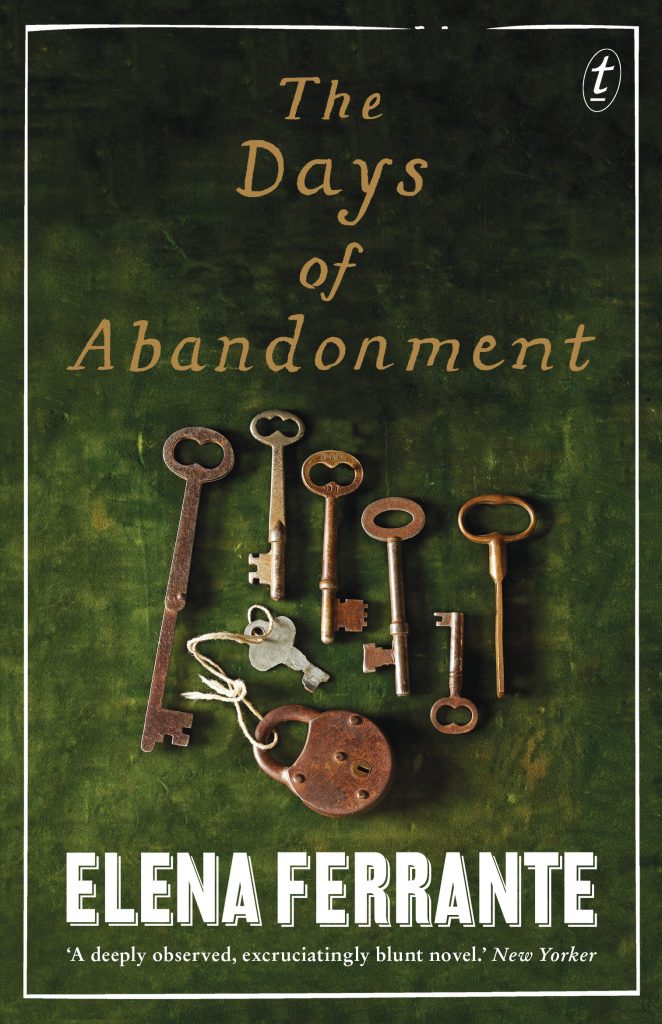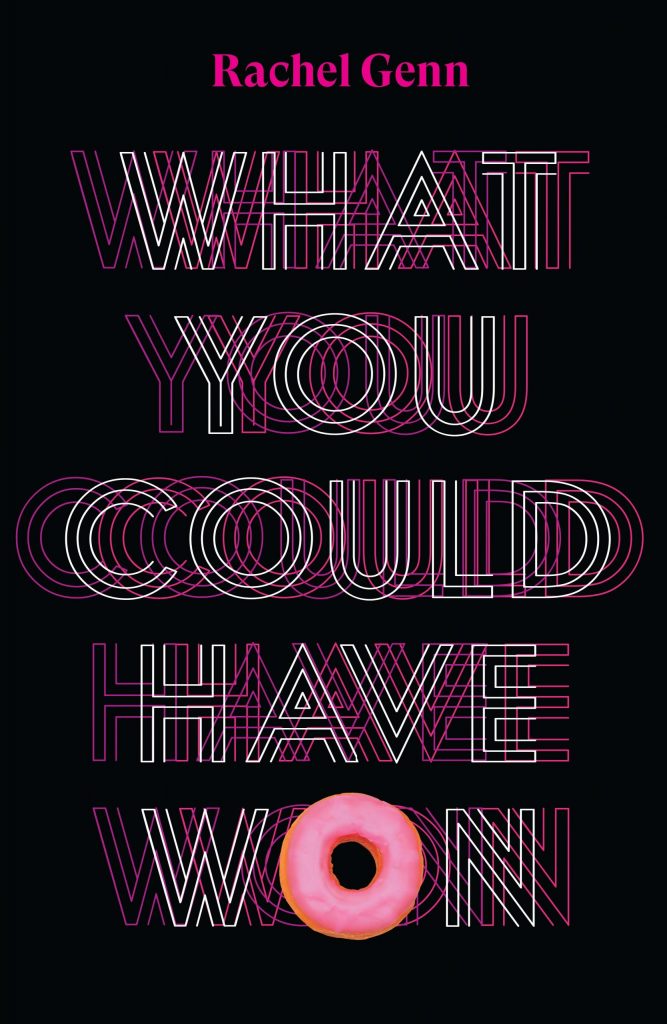The whole future – I thought – will be that way. Life lives together with the damp odour of the land of the dead, attention with inattention, passionate leaps of the heart along with abrupt losses of meaning. But it won’t be worse than the past. (The Days of Abandonment, Elena Ferrante)

Encountering these two books back-to-back provided an extraordinary reading experience. Both are superb. Each tackles a broadly similar subject matter but from a wildly different angle. For two novels covering tangentially allied themes, they could hardly have been more different. For anyone doubting the radical potential of works that focus intimately on human relationships, Ferrante and Genn tear down the curtain, revealing the stormy truth of the adage, ‘the personal is political’. What talent and drive.
In What You Could Have Won, we follow the unequal, tormented relationship between Henry, a psychiatrist engaged in research into addictive behaviours, and Astrid, a newly minted superstar who (the author has affirmed) is loosely based on the (phenomenally talented and tragically deceased) singer and songwriter Amy Winehouse. The narrative switches point of view along a disjointed timeline as we observe Henry’s jealous machinations against various colleagues, his depersonalised fascination with Astrid and his use of her – putting it bluntly – as a kind of lab rat.
Astrid is dazzled by Henry because he appears to be so solidly in control. We follow her terrifying ordeal at the Burning Man concert and subsequent escape (with Henry) to a Greek island, we observe her treatment at the hands of ‘hypno Ray’, a cultish rehab guru with some strange ideas about personal boundaries. As Henry and Astrid’s timelines interweave, our involvement – our acquiescence? – deepens. Reading What You Could Have Won is like watching Elizabeth Taylor and Richard Burton in Who’s Afraid of Virginia Woolf: you feel you’re eavesdropping on private trauma, something you were not supposed to see, and yet you have to see the drama through to its conclusion.

The experience of reading Ferrante’s The Days of Abandonment (translated by Ann Goldstein) is hardly less bruising. Olga is a writer living in Turin with her two children Illaria and Gianni and her husband Mario. After supper one evening, Mario announces that their fifteen-year marriage is over, that the relationship has ceased to have meaning for him. Olga is first bewildered and then increasingly devastated, at a loss as to what has precipitated Mario’s act of abandonment. Mario does that cowardly thing men do – insists ‘it’s not you, it’s me,’ before finally admitting he’s been having an affair. Not just any old affair, either, but the continuation of a relationship that began five years earlier. Olga feels she has, in effect, been living in an alternate reality.
As her grip on her new reality loosens and threatens to collapse, the pressure of trying to carry on as normal becomes increasingly onerous. Her behaviour, once restrained and conservative, becomes more and more untrammelled. Her children, caught in the crossfire between their warring parents, are forced towards a self-reliance that is inappropriate for their young age. For Olga, whose friends seem to have deserted her for the calmer, more glowingly temperate shores of Mario-and-Carla (seriously, I cannot imagine a better book about the realities of divorce), the future feels impenetrable – until a crisis intervenes.
What I have enjoyed most about my time with these two novels is the fascinating clash of registers. What You Could Have Won contains some of the most intelligent, close-grained writing I have encountered all year. For a novel that takes personal trauma as its central subject matter, the tone (almost in a Rachel-Cusk-like way) tends towards the abstract, even abstruse. You have to reach to engage, to dig for the emotion – but once you connect with it, the strength of feeling and power of description is both soul-shaking and mind-grabbing. The switch to first person in the final chapter – and what this means for Astrid – is a genuinely cathartic moment, and the fact that this is achieved through literary device makes it all the more satisfying. Genn’s construction work is careful, knowing and ingenious yet it is fuelled by passion – both for her story and for the written word – and I would expect to see What You Could Have Won strongly in contention for next year’s Goldsmiths.
The Days of Abandonment is so upfront in its treatment of raw emotion – so confronting in its portrayal of mental pain – it can be harrowing to read. And yet this concise, searing account of personal dissolution and restitution is about as far from a conventional ‘relationship drama’ as you might wish it to be. As Olga spirals out of control, Ferrante employs what might be called a storm of language, torrential word-power to evoke her distorted perceptions, for as it turns out, Ferrante’s novel is as much about addiction and altered states as Genn’s. There are passages of hallucinatory rage that spiral off into the abstract, an analysis of consciousness and affect that approaches the philosophical. As with Genn, Ferrante’s endgame is one of transfiguration and catharsis. Olga’s new understanding of love is more astringent, based in self-reliance. The toxic enchantment is broken, the creative life replenished with a newly-found trenchancy.